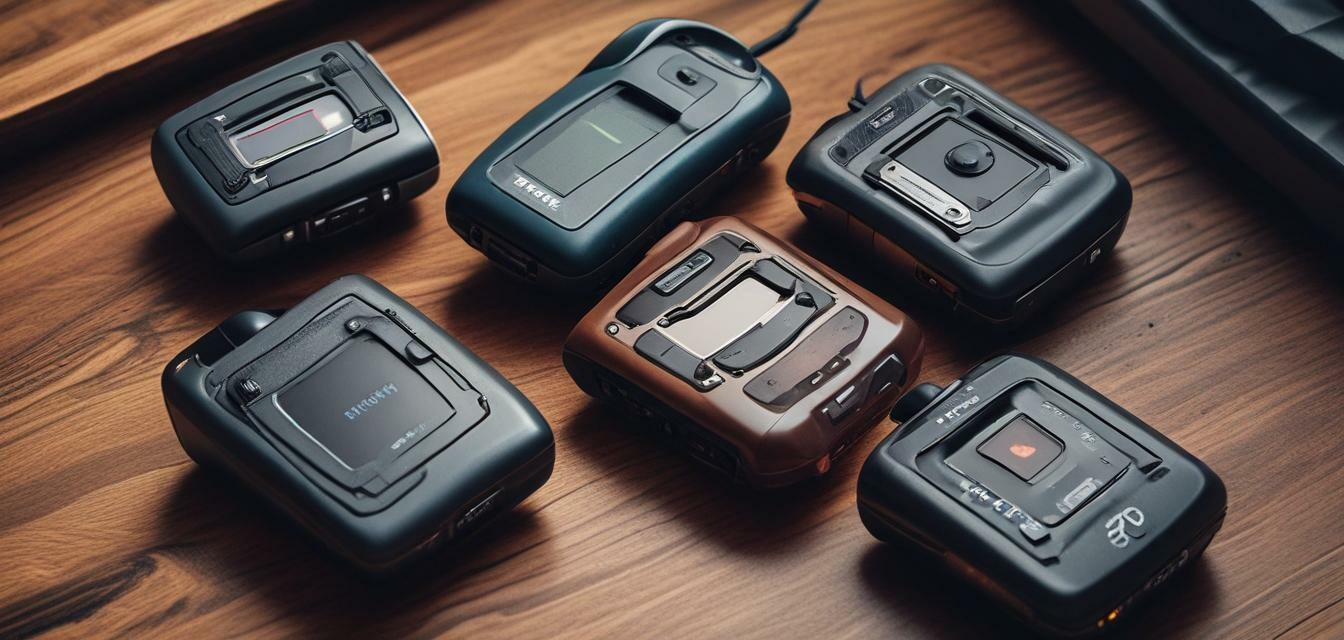
Ultimate Guide to Choosing Your First Radar Detector
Key Takeaways
- Understanding radar detector types is crucial.
- Look for essential features tailored for beginners.
- Price ranges vary, so budget is essential.
- Reading user reviews can guide your decision.
- Understanding local laws regarding radar detectors is important.
Choosing your first radar detector can be a daunting task, especially with the vast number of options available. This guide aims to simplify the process for beginners, providing insights into the key features you should consider. As you read on, you will discover what makes a radar detector beginner-friendly and what to look for when making your purchase.
Understanding the Basics of Radar Detectors
Radar detectors are devices designed to detect radio waves emitted by police radar guns. They inform drivers of the nearby presence of speed monitoring equipment, helping avoid speeding tickets. Here's a brief overview of the different types:
| Type | Description |
|---|---|
| Basic Models | Simple detectors with fundamental features, ideal for casual drivers. |
| Mid-range Models | Enhanced detection capabilities with additional warnings and alerts. |
| Advanced Models | High-end detectors with GPS, voice alerts, and other advanced features ideal for frequent travelers. |
Essential Features to Look For
When selecting your first radar detector, consider the following essential features:
- Detection Range: The longer the detection range, the more time you'll have to adjust your speed.
- Filters: Good radar detectors come with filtering options to minimize false alerts.
- GPS Integration: Helps in identifying fixed speed cameras and offering alerts based on location.
- Display Type: Choose between a visual display or audio alerts based on your preference.
- Ease of Use: Look for intuitive controls and a user-friendly interface.
Price Ranges and Budgeting
Understanding your budget is a critical part of this selection process. Radar detectors can range significantly in price, so you want to ensure you pick one that meets your needs without breaking the bank. Here's a rough pricing guide:
| Price Range | Features |
|---|---|
| Under $100 | Basic detection capabilities without advanced features. |
| $100 - $300 | Better detection range, filters, and some GPS features. |
| Above $300 | Comprehensive features, extreme detection range, and advanced filtering. |
User Reviews and Recommendations
Before finalizing your choice, it’s essential to read reviews from other users. Visiting forums or product pages can offer insights into product reliability and performance. Here are some key points to consider from reviews:
- Look for consistency in feedback regarding performance.
- Pay attention to comments about customer service experiences.
- Evaluating long-term durability is crucial.
Understanding Local Laws
Before purchasing a radar detector, it’s important to understand the laws in your state or region. Some areas have restrictions on their use, while others allow them freely. Researching local regulations will save you from potential fines or confiscation of your device.
Installation and Setup
Once you have chosen your radar detector, the installation process is straightforward. Most models come with a user manual, and here are some quick tips:
- Mount the device at eye level on your windshield for optimal performance.
- Avoid positions obstructing your view of the road.
- Ensure it's securely attached to avoid distractions while driving.
Pros
- Enhanced awareness of speed traps can lead to fewer tickets.
- Many models are easy to install and operate.
- GPS features can help you navigate and avoid speeding zones.
Cons
- Detection capabilities can vary widely based on the model.
- Some areas have legal restrictions on their use.
- Regular updates may be necessary for the latest features and alerts.
Conclusion
Choosing your first radar detector shouldn’t be an overwhelming task. By considering the essential features, understanding your budget, reading user reviews, and being aware of local laws, you can make a well-informed decision. Remember, every driver has different needs; thus, doing thorough research will ensure you find the best radar detector for you!
For more insights into radar detectors, check out our collection of entry-level radar detectors or browse advanced radar detectors for more features. Looking for accessories? Explore our radar detector accessories for enhancements!
